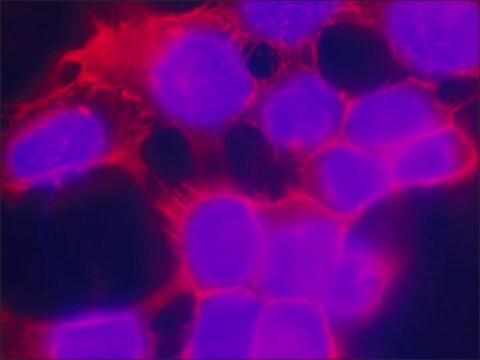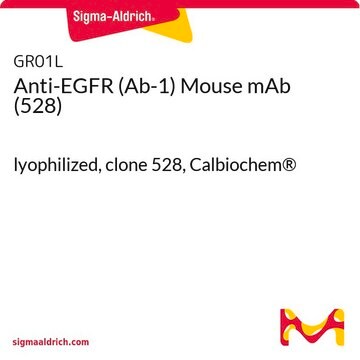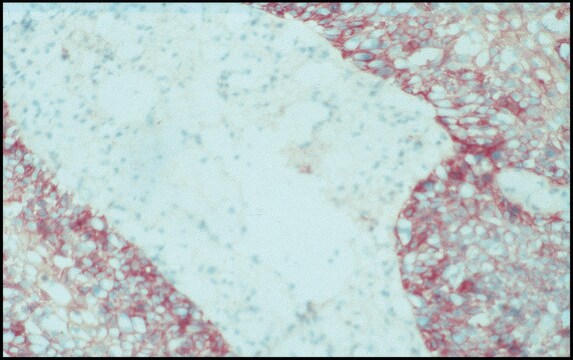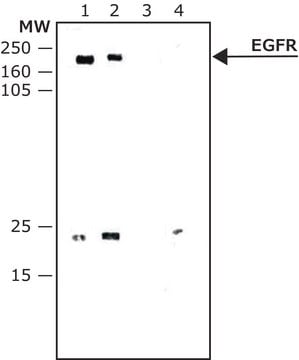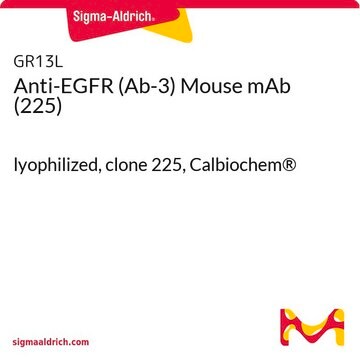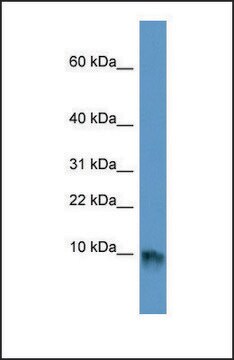GR01
Anti-EGFR (Ab-1) Mouse mAb (528)
liquid, clone 528, Calbiochem®
Synonym(s):
Anti-Epidermal Growth Factor Receptor
About This Item
Recommended Products
biological source
mouse
Quality Level
antibody form
purified antibody
antibody product type
primary antibodies
clone
528, monoclonal
form
liquid
contains
≤0.1% sodium azide as preservative
species reactivity
human
should not react with
mouse, rat
manufacturer/tradename
Calbiochem®
storage condition
do not freeze
isotype
IgG2a
shipped in
wet ice
storage temp.
2-8°C
target post-translational modification
unmodified
Gene Information
human ... EGFR(1956)
mouse ... Egfr(13649)
rat ... Egf(25313)
General description
Application
Frozen Sections (2.5 µg/ml)
Immunofluorescence (5 µg/ml)
Immunoprecipitation(1 µg/sample)
Neutralization Studies (see comments and application references)
Paraffin Sections (see application references)
Packaging
Warning
Analysis Note
HL-60 cells or human brain
A-431 or normal skin tissue
Other Notes
Masui, H., et al. 1984. Cancer Res.44, 1002.
Reynolds, F. H., Jr., et al. 1981. Nature 292, 259.
Ushiro, H. and Cohen, S. 1980. J. Biol. Chem.255, 8363.
Legal Information
Not finding the right product?
Try our Product Selector Tool.
Storage Class Code
10 - Combustible liquids
WGK
nwg
Flash Point(F)
Not applicable
Flash Point(C)
Not applicable
Regulatory Listings
Regulatory Listings are mainly provided for chemical products. Only limited information can be provided here for non-chemical products. No entry means none of the components are listed. It is the user’s obligation to ensure the safe and legal use of the product.
JAN Code
GR01-100UG:
GR01-MG:
GR01-ML:
Certificates of Analysis (COA)
Search for Certificates of Analysis (COA) by entering the products Lot/Batch Number. Lot and Batch Numbers can be found on a product’s label following the words ‘Lot’ or ‘Batch’.
Already Own This Product?
Find documentation for the products that you have recently purchased in the Document Library.
Our team of scientists has experience in all areas of research including Life Science, Material Science, Chemical Synthesis, Chromatography, Analytical and many others.
Contact Technical Service